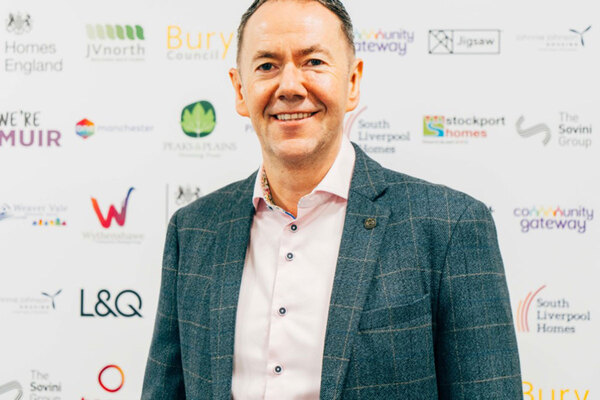You are viewing 1 of your 1 free articles
 Sasha Deepwell
Sasha DeepwellSasha is a senior housing executive with a track record of transformational leadership that has made a real difference for customers. S ...more
Housing leaders should sign a charter to address sexual harassment in the workplace
The revelation that nearly a quarter of housing professionals have been sexually harassed at work is a sobering thought for the sector. Sasha Deepwell calls for leaders to sign a charter to address the situation
In my first month as a housing manager, I was approached by a housing officer from a different team for a confidential discussion. She had been propositioned by a male colleague and wanted me to take no action but just note what was happening as she thought he was predatory towards other women too, including more junior administrators.
She felt she couldn’t report her concerns to their manager as he would possibly not believe her, dismiss the incident or not handle it confidentially.
This incident was 27 years ago and yet, as the Inside Housing survey on sexual harassment has revealed, the colleague experience in our sector is still marred by sexist attitudes and behaviour. Moreover, reporting levels remain low suggesting we have got it wrong in terms of our organisational approach to sexual harassment.
In the past few years, I have heard several complaints which resulted in action taken against board members and colleagues alike for inappropriate sexist conduct, including sexual harassment, both face to face and online via social media.
“In the past few years, I have heard several complaints which resulted in action taken against board members and colleagues alike for inappropriate sexist conduct, including sexual harassment.”
These incidents are always confidential of course, but it is so important that we share our general experience in the sector to encourage open debate and more importantly create a climate where those suffering abuse come forward in full confidence that they will be supported appropriately.
I hope @insidehousing continues this campaign The response from #ukhousing so far has been strangely muted. Are we still on denial? @jester #metoo pic.twitter.com/QoaQrC8qea
— Tom Murtha (@tomemurtha)I hope @insidehousing continues this campaign The response from #ukhousing so far has been strangely muted. Are we still on denial? @jester #metoo pic.twitter.com/QoaQrC8qea
— Tom Murtha (@tomemurtha) June 15, 2018
Good practice suggests having very clear, well publicised policies and guidelines with confidential access to trusted people who will listen, believe the complainant and reassure them that appropriate action will be taken. This is especially important when the abuser is a senior colleague.
This means carrying out proper investigations with clear sanctions in place, whether this is disciplinary action or indeed referral to the police in cases where there are legal grounds.
However, all actions require consent from the complainant and this is crucial as they need to feel in control of what is happening. One of the harmful aspects of sexual harassment for the person suffering this abuse is the loss of control and trust that it can engender. It is so important that if someone confides in you that they regain control of the situation through consenting to any proposed action.
“One of the harmful aspects of sexual harassment for the person suffering this abuse is the loss of control and trust that it can engender.”
We need to gain a better understanding of the full range of issues involved here, especially the intersections between gender, race, sexuality and disability. These aspects of discrimination can combine to make the impact of sexual harassment particularly disempowering as was evidenced in the survey responses.
Leaders in particular have a role to play here. I am encouraged by the responses to the survey from the Chartered Institute of Housing and National Housing Federation as I believe we need a combined effort to improve our approach. I would like to see all chief executives and chairs sign up to a charter on this (and related issues) to create the culture where sexual harassment is addressed effectively in all our workplaces.
“I would like to see all chief executives and chairs sign up to a charter on this to create the culture where sexual harassment is addressed effectively in all our workplaces.”
Culture goes beyond policies and procedures. It informs behaviour, that tangible but often not articulated understanding that ‘this is what it’s like here’.
As the survey revealed, the main reasons for not reporting sexual harassment relate to culture or the involvement of senior colleagues. I am very proud to work in this sector and to support our ambitious aims to improve the lives and homes of customers. But we need to also look at our own home ground – our organisations – and address the weaknesses in our culture that allows sexual harassment to perpetuate. We can and must change this.
Sasha Deepwell, chief executive, Irwell Valley Housing Association









